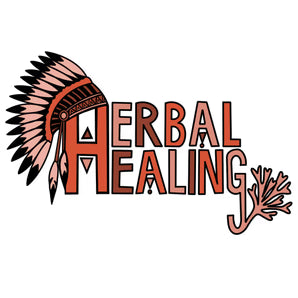Introduction
Chickweed (Stellaria media) is a common yet powerful herb celebrated for its wide range of health and skincare benefits. Often considered a weed, Chickweed has been harnessed in traditional medicine for centuries to address various ailments. This blog explores the history, traditional uses, scientific research, harvesting practices, and the myriad benefits of incorporating Chickweed into your wellness routine.
Learn about Chickweed's versatile health benefits. Explore its history, traditional uses, scientific research, and safe usage. Discover why Chickweed is a valuable addition to your herbal wellness routine.

History and Traditional Uses
Historical Significance
Chickweed has a long-standing history in herbal medicine, dating back to ancient Greece and Rome. It was used extensively by herbalists for its soothing properties and was a staple in medieval apothecaries.
Medieval Herbal Practices
In medieval Europe, Chickweed was employed to treat respiratory issues, digestive problems, and skin conditions. Its adaptability and ease of growth made it a go-to remedy for many communities worldwide.
Cultural Applications
Native American tribes and European herbalists alike valued Chickweed for its versatility, using it to treat a range of ailments from minor wounds to chronic conditions like arthritis.
Nutritional Content
Vitamins and Minerals
Chickweed is rich in vitamins A, C, and K, as well as essential minerals such as calcium, magnesium, and iron. These nutrients contribute to its overall health benefits and support various bodily functions.
Antioxidants and Phytonutrients
Packed with antioxidants like flavonoids and saponins, Chickweed helps combat oxidative stress and supports cellular health. These phytonutrients play a crucial role in reducing inflammation and protecting against cellular damage.
Amino Acids and Proteins
Chickweed contains essential amino acids and proteins, making it a valuable plant-based source of nutrition that supports muscle repair and overall bodily functions.
Health Benefits for Skin, Inflammation, and Overall Health
Skin Health
Chickweed is renowned for its ability to soothe and heal the skin. It has been used to treat conditions like eczema, psoriasis, acne, and minor wounds. Its cooling properties make it an excellent ingredient in balms and creams.
Anti-Inflammatory Properties
The anti-inflammatory compounds in Chickweed help reduce inflammation in conditions such as arthritis and muscle soreness, providing natural relief without the side effects of pharmaceutical drugs.
Digestive Health
Chickweed aids in digestion, reduces bloating, and alleviates constipation. Its high fiber content promotes a healthy gut microbiome, enhancing overall digestive function.
Immune Support
Rich in vitamins and antioxidants, Chickweed boosts the immune system, helping the body fend off infections and illnesses more effectively.
Antioxidant Protection
The antioxidants in Chickweed protect cells from oxidative damage, supporting overall health and reducing the risk of chronic diseases.
Scientific Research Supporting Its Use
Anti-Inflammatory Mechanisms
Studies have shown that Chickweed contains compounds like flavonoids and saponins that exhibit significant anti-inflammatory effects, making it effective in reducing skin irritation and inflammation.
Antioxidant Efficacy
Research highlights Chickweed's strong antioxidant capacity, which helps protect cells from free radical damage and supports immune function.
Antimicrobial Properties
Chickweed possesses antimicrobial properties that can help prevent infections and promote wound healing, making it a valuable addition to natural skincare regimens.
Nutrient Absorption and Utilisation
Scientific studies indicate that the body efficiently absorbs and utilises the nutrients in Chickweed, enhancing its overall health benefits and supporting various bodily functions.
Safe Usage and Potential Side Effects
Recommended Dosages
Chickweed is commonly consumed as a tea, with recommended dosages ranging from 1-2 cups daily. Supplements are also available in capsule and tincture forms for convenient use.
Possible Side Effects
While Chickweed is generally safe, some individuals may experience allergic reactions or digestive discomfort. It's essential to start with small doses to assess tolerance.
Precautions
Consult with healthcare providers before starting Chickweed, especially for pregnant or nursing women, or individuals with existing health conditions or those taking other medications.
How to Consume Chickweed
Topical Applications
Chickweed can be made into salves, creams, and compresses to soothe irritated skin, treat eczema, and promote healing of minor wounds.
Internal Consumption
Preparing Chickweed tea involves steeping fresh or dried leaves in hot water for 10-15 minutes. It can also be added to salads, smoothies, and soups for an added nutritional boost.
Supplements
Chickweed is available in various supplement forms, including capsules, tinctures, and extracts, offering a convenient way to incorporate its benefits into daily routines.
Culinary Uses
Fresh Chickweed can be added to salads, sandwiches, and soups, while dried Chickweed is great for making herbal teas or infusing into beverages and recipes.
Conclusion
Chickweed is a remarkable herb that offers a multitude of health and skincare benefits. Its rich history in traditional medicine is now being supported by scientific research, highlighting its potential as a natural remedy for various conditions. Whether you're looking to enhance your skin health, support your digestive system, or boost your overall nutrition, Chickweed is a versatile and valuable addition to your herbal wellness toolkit.
_________________________
